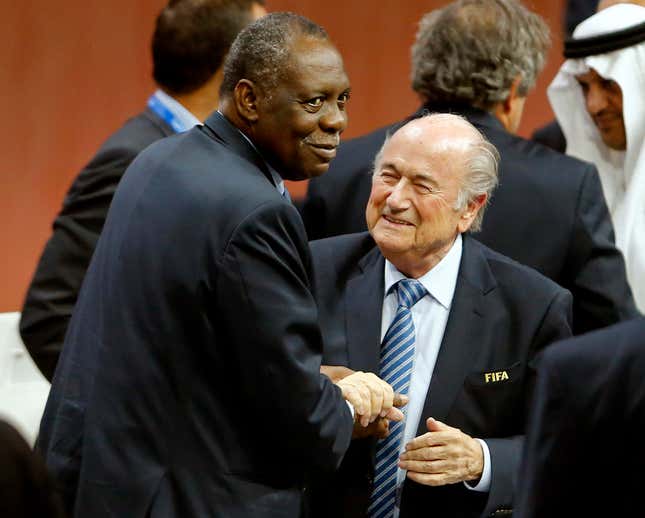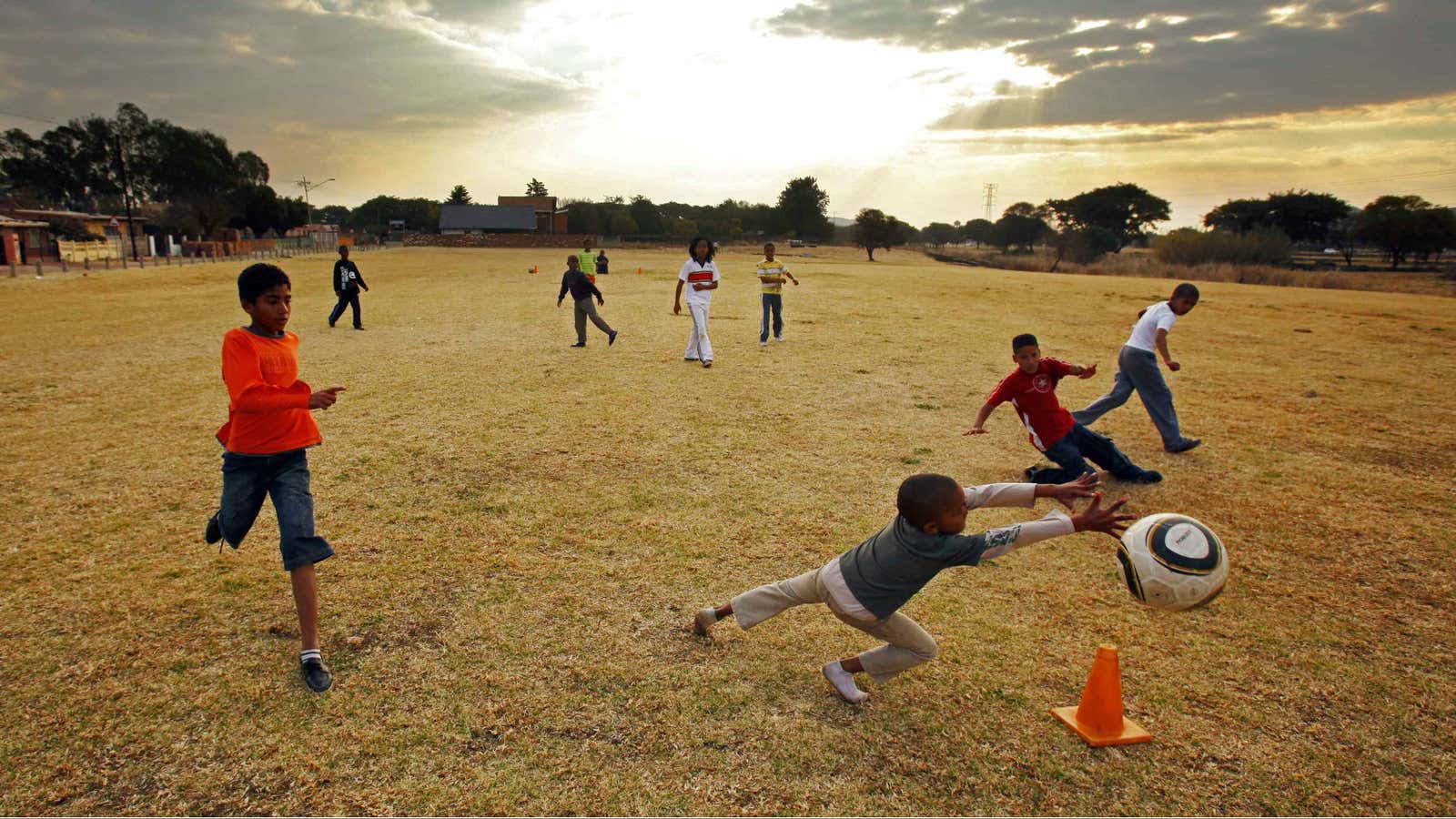When FIFA’s corruption scandals first erupted in May, there were calls by some in Europe to end the organization as we know it. To save football, Europe needs to break away, they said. As long as Sepp Blatter remains at the helm of world soccer’s governing body, no substantial reforms can take place. Africa and Asia are responsible for propping up Blatter, the argument went. So, the only way to remove his stranglehold on the global game is to have its economic powerhouse, Europe, extricate itself from his influence.
Blatter is now gone. Michel Platini, head of UEFA, the European body, and once the favorite to succeed him, is embroiled in his own corruption scandal. He too has been suspended by FIFA’s ethics committee.
It has now fallen to Issa Hayatou, the long-term leader of the Confederation of African Football (CAF), to lead FIFA. So, from Africa having undue influence in the global game, we are now in a situation where the most powerful man in soccer is a Cameroonian former athlete. Who said football is boring?

FIFA is working hard to clean up house. In the midst of its worst crisis in the organization’s 111-year history, the body’s ethics committee is asserting itself trying to restore credibility before the February elections for a new president. And for the next 90 days, the 69-year old Hayatou, the son of a sultan no less, will man the fort.
Despite once running for the top job himself, he has made clear that he won’t seek the presidency this time around. “I will serve only on an interim basis,” he said. While he has been accused of unethical practices in the past, Hayatou was at pains to reassure critics of the organization that under his stewardship, “FIFA remains committed to the reform process, which is critical to reclaiming public trust.”
The other commitment that Hayatou wants to retain is the global nature of FIFA. Blatter, despite his many faults, helped globalize the game. He helped push for rotating World Cup hosts on different continents which allowed for the tournament to be held in Asia and Africa for the first time. He worked with Hayatou, despite once being bitter rivals, to increase African representation at the World Cup from two to the current number of five. Both men understood the changing landscape of the game and they governed accordingly. “Football has never enjoyed greater support throughout the world,” Hayatou said. “That is something everyone associated with FIFA should be proud of.”
But some in Europe see the crisis at FIFA as an opportunity to wrestle back control of the game from forces they see as corrupt. While everyone who loves football wants the game to be free of corruption, they also want to see those who govern it reflect the diversity of its fans. Whoever assumes the presidency in February ought to remember that.




